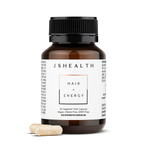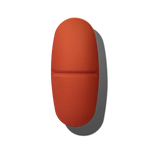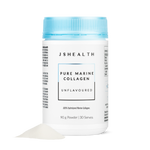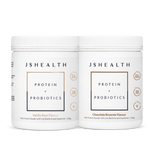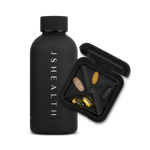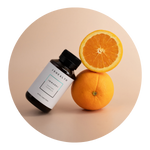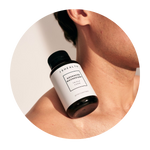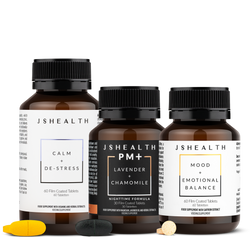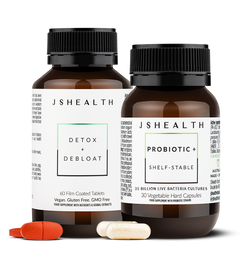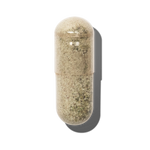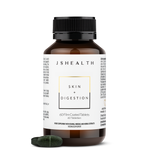The What, Why & How of Probiotics
When it comes to understanding the world of probiotics, we’ve got your bac-teria! Let's take a look at the what, why and how of these gut-loving microorganisms.
The WHAT?
The current definition provided by the Food and Agriculture Organization of the United Nations World Health Organization: “Live microorganisms which when administered in adequate amounts confer a health benefit on the host.”
Approximately 100 trillion micro-organisms (mainly bacteria, but also viruses, fungi and protozoa) are present in the human gastrointestinal tract. The human gut microbiome and its role in health and disease has been the centre of extensive research in regards to metabolism, physiology and immunity. An imbalance of normal gut function has been associated with gastrointestinal conditions like inflammatory bowel disease and inflammatory bowel syndrome.
Probiotics can also be found in fermented foods such as sauerkraut, kimchi, greek yoghurt, miso and sourdough bread.
It’s important to know that since the function of probiotics are related to specific strains, identifying the strain is recommended to determine their suitability and performance. The Lactobacillus and Bifidobacterium strains are regarded as safest and most commonly used.
The WHY?
Probiotics are known as ‘good bacteria’, which have various beneficial functions such as the prevention of gastrointestinal conditions, supporting the immune system, promoting skin health, balancing the intestinal microbes and reducing traveller’s diarrhoea.
The HOW?
A probiotic strain is able to provide us with health benefits when ingested, so long as it has certain properties such as:
- Be able to tolerate and survive through acid and bile (the stomach and the surroundings of the gastrointestinal system have the highest acidity)
- Stick to the inner lining of the gut, this is especially important for probiotics effects on the immune response and to prevent pathogens (an organism that can cause disease) from entering and settling
- To provide antimicrobial activity against pathogens
Taking a high quality probiotic supplement is a great way to support a healthy gut microbiome with plenty of good bacteria. You can try our Probiotic+ which is shelf stable and contains probiotic strains scientifically proven to support digestive system function, healthy bowel function and regularity, and relieve constipation.
References:
Shi LH, Balakrishnan K, Thiagarajah K, Mohd Ismail NI, Yin OS. Beneficial Properties of Probiotics. Trop Life Sci Res. 2016;27(2):73-90.
Wells JM. Immunomodulatory mechanisms of lactobacilli. Microb Cell Fact. 2011 Aug 30;10 Suppl 1(Suppl 1):S17.
Kechagia M, Basoulis D, Konstantopoulou S, et al. Health benefits of probiotics: a review. ISRN Nutr. 2013;2013:481651. Published 2013 Jan 2.
